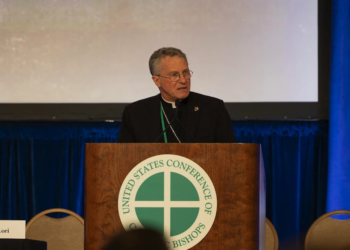Of all the hubristic practices, none is perhaps as amusing as that of the primacy of the present: the conviction that ‘today’ acts as guarantor of the accuracy of the beliefs of now against those of before.
It is rooted in the canonisation of the scientific method, based on the misconception that the rate of technological progress is directly proportional to the approach of the truth. No doubt it was with a volley of celebratory backslapping and hand-shaking that scientists ‘discovered’ last year that there are six types of love; the Greeks had reached this conclusion over 2 millennia ago, but because they didn’t have a 5G connection they hadn’t been considered credible sources.
What escapes the intellectual elite of today is that they are tomorrow’s Greeks, and so ought to compare their own beliefs to those of others with the humility of already being a product of yesterday.
Where this tyranny of science deleteriously applies itself is in the question of the existence of God, which it has reduced to a problem of observable or non-observable epistemology; as a ‘solved’ issue, therefore – God does not visibly exist – it does not demand further investigation.
The 2021 census conducted by the ONS found that 46.2 per cent of the population identified as Christian, while 37.2 per cent identified as atheist; in 2011, this was 59.3 per cent and 25.2 per cent respectively. This weakening of the Christian faith is not only a population phenomenon: according to the National Churches Trust, 3,500 churches have closed in the last 10 years out of a total of 40,000. As more subscribe to the social commentary that religion is equivalent to fable, and that after the Tooth Fairy and Santa Claus, children stop believing in God, Christianity has ceased to be a serious way of life; atheism is perceived as a sobering realisation alongside sexual education, concomitant with maturity into adulthood.
However, what the steady inveteration of anti-social behaviour in Britain today is proving is that the existence of God is necessary. The attempt to rationalise away His existence has created an ontology which turns uniquely on the self: where moral issues have been trivialised into a system of I-find-that-offensive and I-don’t-care-that-you-find-that-offensive playground ethics, truth and goodness have become accessories to personal profit.
The absence of God has created a judicial vacuum which many have elected themselves to replace; they use the moral independence permitted by the proclamation of their own ‘truth’ to justify the indulgence of their caprices at the expense of everyone else. What is uniquely dangerous about this phenomenon is that it transcends class division, uniting petty larceny and gluing oneself to the M25 in a shared rejection of social responsibility by both working and middle-class citizens.
The ONS crime statistics report indicates that shoplifting offences last year rose by 23 per cent compared with the previous year to the highest number since current police recording practices began in 2003. According to TFL, the number of crimes committed on the London Underground in 2023/24 was 23,595, representing an increase of 140 per cent from 9829 in 2014/15. At its height in 2019, Extinction Rebellion imposed a cost of £40 million on the Metropolitan Police over the year, while between 2022 and 2023, Just Stop Oil protests required £20 million in policing expenses. Britain has been plagued by the proliferation of the misdemeanour, widespread low-level criminality bred out of an unwillingness to recognise the authority of the community over the individual; ‘I rebel because I can’ has become the modus vivendi of a Godless population no longer guided by a sense of the common good.
One must not be surprised to read, then, that the YouGov survey last month discovered that 11 per cent of those aged 18-30 would be prepared to fight in a war, while 41 per cent would explicitly not be. Britain’s dechristianisation in the 2010s was directly proportional to increasing permissiveness towards cancel culture; the canon of the Islington elite redefined moral issues along the axes of self-profit and harm in a rejection of an impersonalised ethics system. Moreover, it overturned Christian inclusivity to reintroduce the ‘enemification’ of the ‘other’, destroying and embittering those who disagreed with it. In this way, it has created two groups of people: those who hate the country, and those who feel that they are hated by it.
With nationalism and religion together underpinned by the anthem’s injunction, ‘God save the King’, the fate of the country has, therefore, become no one’s concern. This has left it increasingly vulnerable to foreign interference: China exploited the self-imposed culture of suppression last year to censor UCL professor Michelle Shipworth, who was banned from teaching one of her modules, which mentioned modern slavery in China, because it was deemed “provocative” by a Chinese student. At the same time, Amnesty International published a report on the “transnational repression” of Chinese overseas students in the campaign of harassment and surveillance conducted by the CCP.
Without the Unity which God has traditionally provided to it, Britain has forgotten its sense of the common good, losing itself in a spiral of instability and apathy which has left its ship of state rudderless, crewless and helmsmanless. Humanism has failed; if Britain does not reunify under Christianity soon, then its enemies will quickly come and put in place their own ideology instead.



![Former Bravo Star Charged After Violent Assault Using a Rock-Filled Sock in Tennessee Walmart [WATCH]](https://www.right2024.com/wp-content/uploads/2025/07/Former-Bravo-Star-Charged-After-Violent-Assault-Using-a-Rock-Filled-350x250.jpg)



![NYC Man Snatches Child Off The Sidewalk, Parents Chase Him Down [WATCH]](https://www.right2024.com/wp-content/uploads/2025/07/NYC-Man-Snatches-Child-Off-The-Sidewalk-Parents-Chase-Him-350x250.jpg)
![Karoline Leavitt Levels CNN's Kaitlan Collins and Other Legacy Media Reporters [WATCH]](https://www.right2024.com/wp-content/uploads/2025/07/Karoline-Leavitt-Levels-CNNs-Kaitlan-Collins-and-Other-Legacy-Media-350x250.jpg)
![Man Arrested After Screaming at Senators During Big Beautiful Bill Debate [WATCH]](https://www.right2024.com/wp-content/uploads/2025/06/Man-Arrested-After-Screaming-at-Senators-During-Big-Beautiful-Bill-350x250.jpg)

![Leftists Lose Their Minds After Jason Kelce Celebrates Being an American [WATCH]](https://www.right2024.com/wp-content/uploads/2025/07/Leftists-Lose-Their-Minds-After-Jason-Kelce-Celebrates-Being-an-350x250.jpg)





